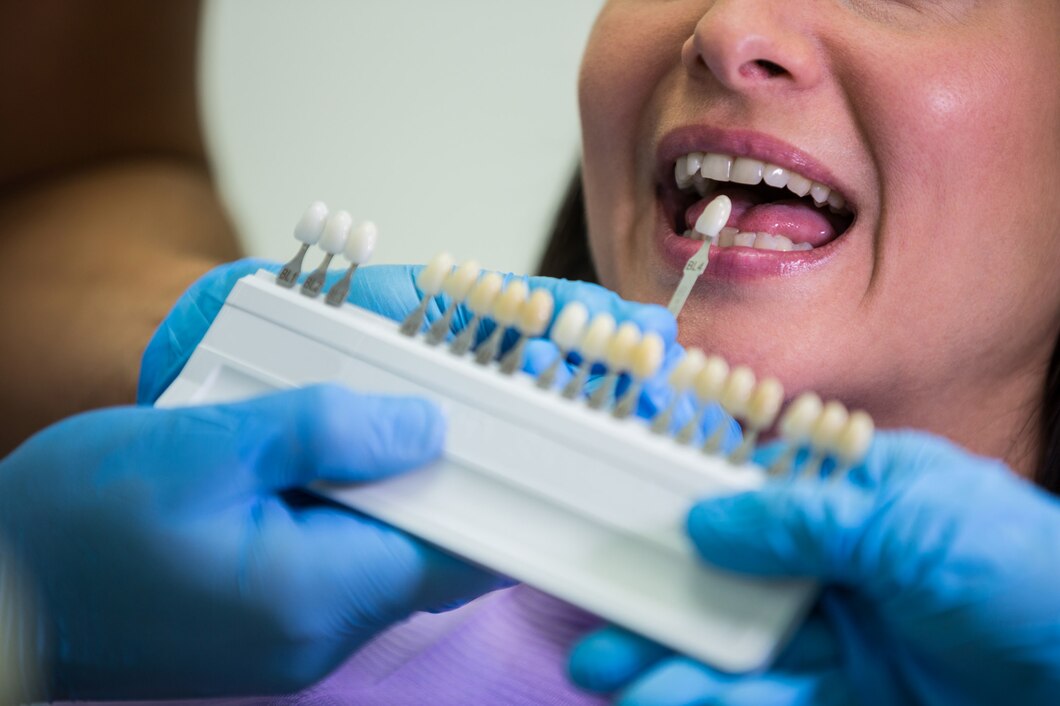Dental veneers have become a popular solution for improving the appearance of teeth and boosting self-confidence. This procedure involves applying a thin layer to the surface of the teeth to enhance their color, shape, or alignment. However, once veneers are in place, extra care is essential to ensure their longevity and to maintain the health of the underlying teeth. Here are some useful tips for maintaining your teeth after getting veneers.
First, Practice Optimal Oral Hygiene. Maintaining excellent oral hygiene is crucial. Although veneers are made from stain-resistant materials such as porcelain, bacteria and plaque can still accumulate around the gum line or between the teeth. Brushing twice a day with a soft-bristled toothbrush and using dental floss regularly helps keep your mouth clean and prevents issues like cavities and gum disease. As noted in a study by drg. Wignyo Hadriyanto, M.S, Sp.KG (K) , indirect labial veneer restorations using Adoro material can be an effective solution for enhancing the aesthetics of fluorosis-affected teeth. However, they still require proper maintenance to preserve the results, including good oral hygiene practices.
Second, Avoid Biting Hard Objects. While veneers are designed to be durable, habits like biting on hard objects—such as pencils, fingernails, or ice—can damage them. If you grind your teeth (a condition known as bruxism), it's advisable to wear a custom mouthguard at night to protect your veneers from excessive pressure. Research by Dr. drg. Ema Mulyawati, M.S, Sp.KG (K) , also highlights the importance of choosing the right materials for direct labial veneer restorations using nanofiller composite resin. These materials offer both strength and aesthetics, but it’s still important to avoid habits that could compromise their integrity.
Third, Be Mindful of Your Diet. Although veneers are stain-resistant, it’s best to limit foods and drinks known to cause discoloration—such as coffee, tea, and red wine—especially if your veneers are made from composite resin. You should also avoid sticky or overly hard foods that could loosen or crack your veneers.
Fourth, Schedule Regular Dental Visits. Visiting the dentist every six months is important not only for monitoring the condition of your veneers but also for maintaining overall oral health. Dentists can also perform professional cleanings to keep your veneers plaque-free and looking their best.
Last, Use Suitable Oral Care Products. Avoid abrasive toothpaste, which can damage the veneer surface. Instead, choose a gentle yet effective toothpaste that keeps your mouth clean without scratching the veneers.
By following these tips, your veneers can last longer and continue to look flawless. More importantly, maintaining the health of your natural teeth beneath the veneers is key to enjoying a beautiful, healthy smile in the long term. This effort aligns with Sustainable Development Goal (SDG) 3, which aims to ensure healthy lives and promote well-being, and SDG 4, which emphasizes quality education as a means to raise public awareness of oral health.
References
drg. Wignyo Hadriyanto, M.S, Sp.KG (K), Indirect Labial Veneer Restoration Using Adoro Material for Maxillary Right Incisor with Fluorosis (TF Score 4, https://etd.repository.ugm.ac.id/penelitian/detail/35388
Dr. drg. Ema Mulyawati, M.S, Sp.KG (K), Direct Labial Veneer Restoration Using Nanofiller Composite Resin with Color Modifier for Discoloration of Four Maxillary Anterior Teeth Post-Bleachin, https://etd.repository.ugm.ac.id/penelitian/detail/37938
Author: Rizky B. Hendrawan | Photo: Freepik

